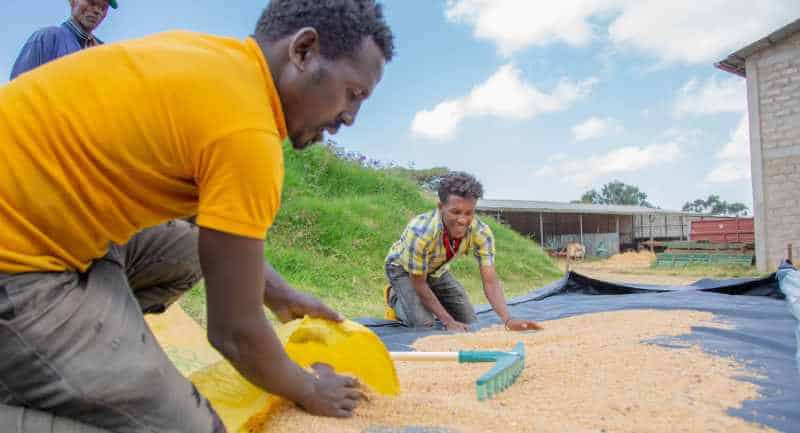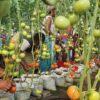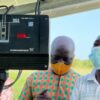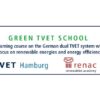Solar drying – and avoiding crop losses
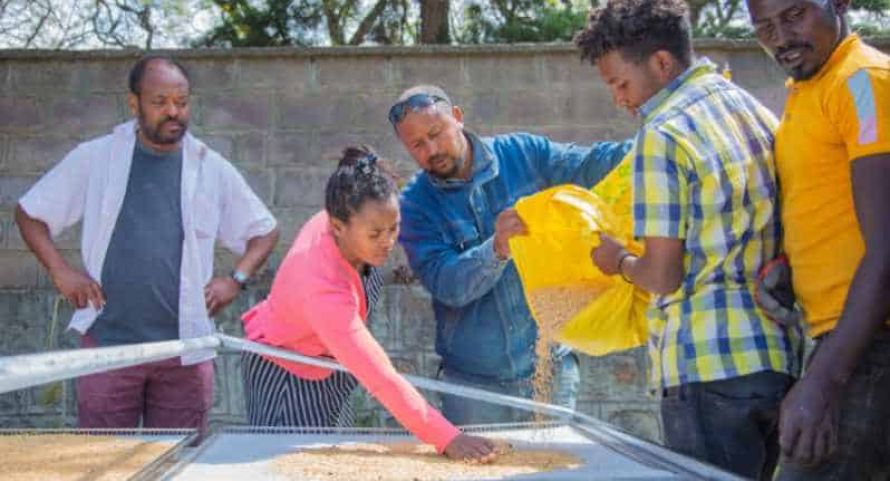
Since time immemorial, small-holder farmers have been drying fruits, beans and other crops with the help of the sun. However, this practice goes along with serious disadvantages. In contrast, solar-PV-powered drying, however, avoids crop losses. Because this technology is still relatively unknown in Ethiopia, Green People´s Energy (GBE) is testing two tunnel drying models that operate with the help of solar-PV.
In Ethiopia, many farmers and smallholders use the sun to dry coffee, apricots, seeds, beans or fruits. To do this, they spread out their fruits on tarpaulins, turn them over regularly and hope that moisture will not ruin their efforts.
However, this age-old technique has serious drawbacks, Walelign Girm Teka knows: “The biggest disadvantage of conventional air drying is crop loss. It can also lead to uneven moisture content in agricultural produce, resulting in lower income for farmers,” says the agricultural engineer of WGT consulting. “In addition, birds and rodents steal fruits and seeds, and these can also transmit diseases through them,” Teka adds.
But there are alternatives at hand: Solar-PV-powered tunnel drying, for example, is an innovative and proven solution. In the tunnel, the fruit dries with the help of a solar-powered fan, and the crop is well protected inside.
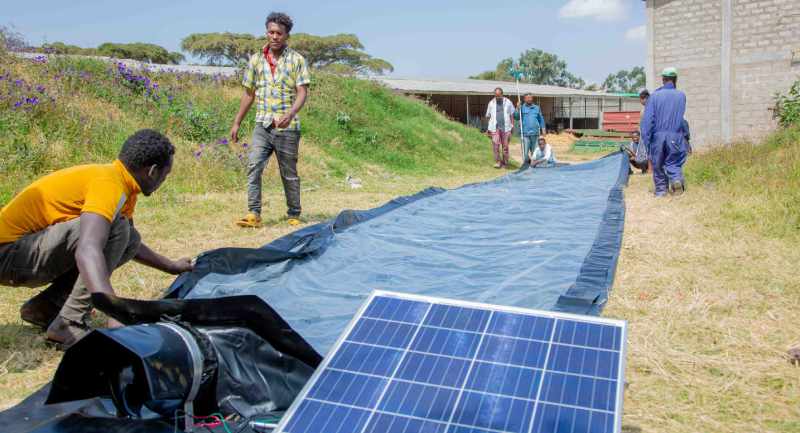
Since this technology is still quite unknown in Ethiopia, GBE)has decided to test two different types of solar tunnel dryers in rural Ethiopia. In doing so, it is collaborating with two other GIZ-implemented projects: Green Innovation Centers for the Food and Agriculture Sector and Supporting Sustainable Agricultural Productivity.
Partners in these field trials are seed-producing cooperatives. Agricultural research centers have also received some of these solar tunnel dryers as well. They will scientifically analyze and compare both types of dryers. At the end, they plan to make a recommendation. “We will not only use them for simple drying, but also record the duration of drying time of different crops,” says Fekede Tenna, research director, Holeta Agricultural Research Center. Through the field-testing as well as the scientifically underpinned research of the solar-PV tunnel dryers, it is hoped that a case for replication and upscaling can be made for the Ethiopian agricultural sector.
